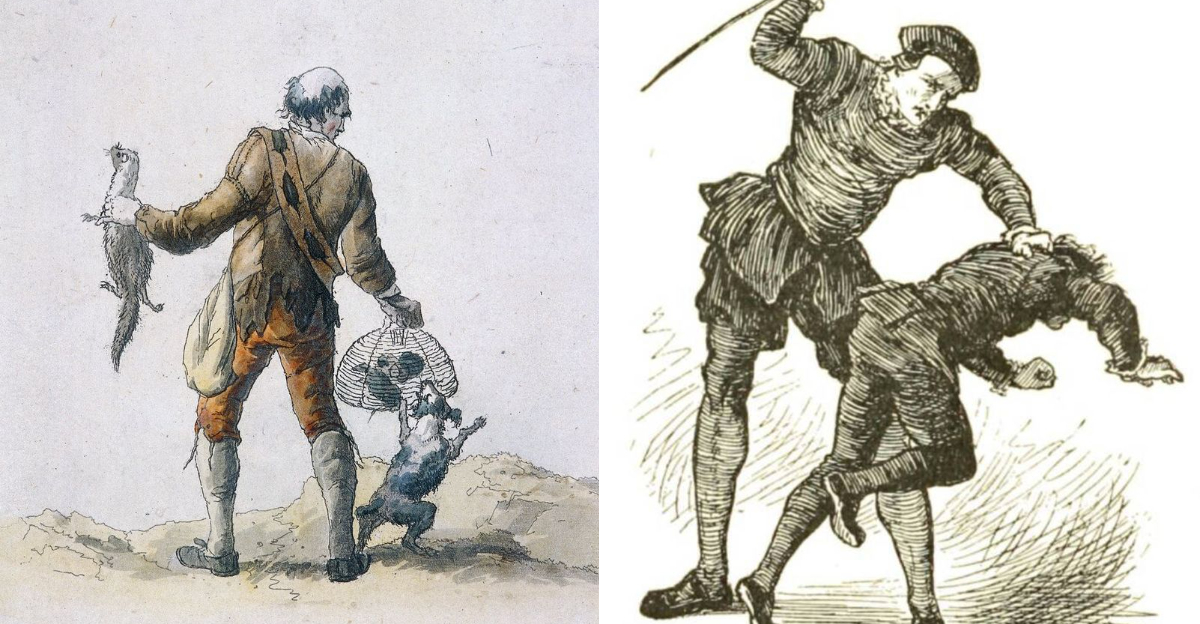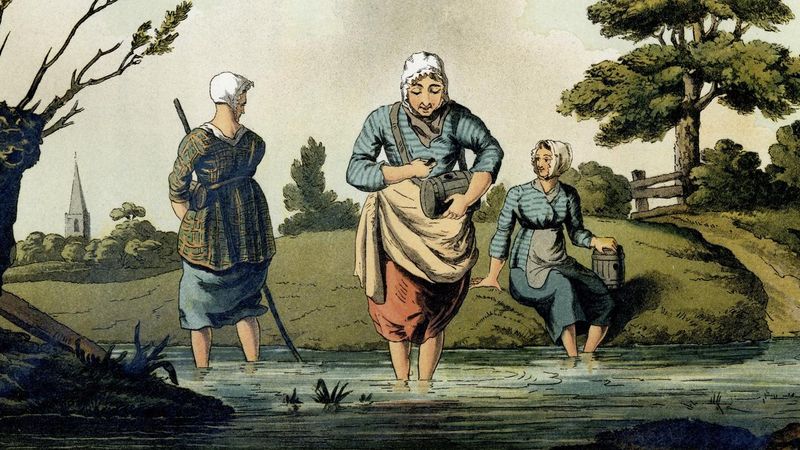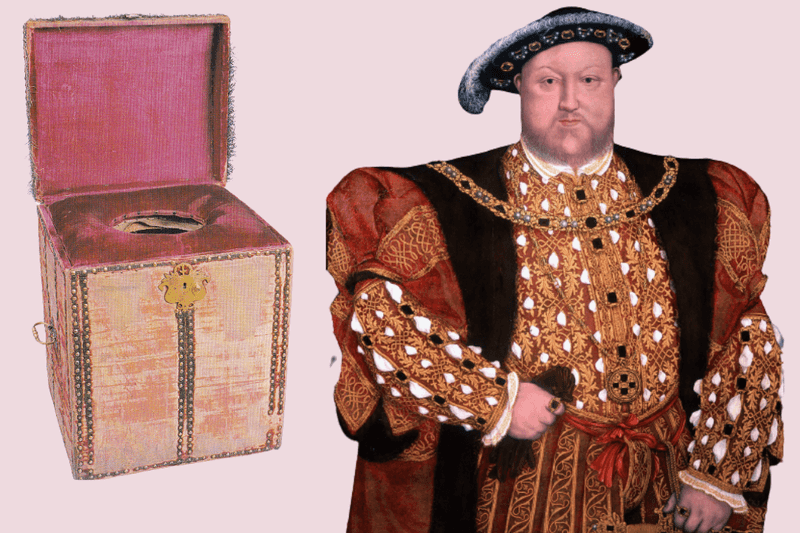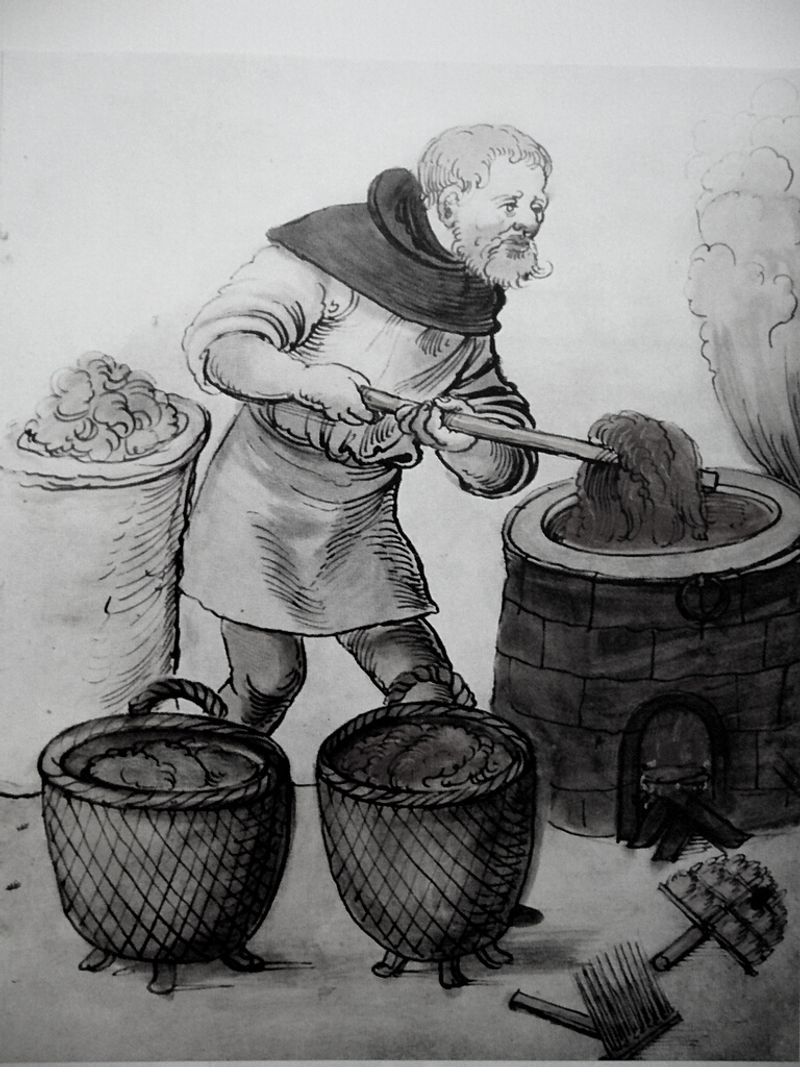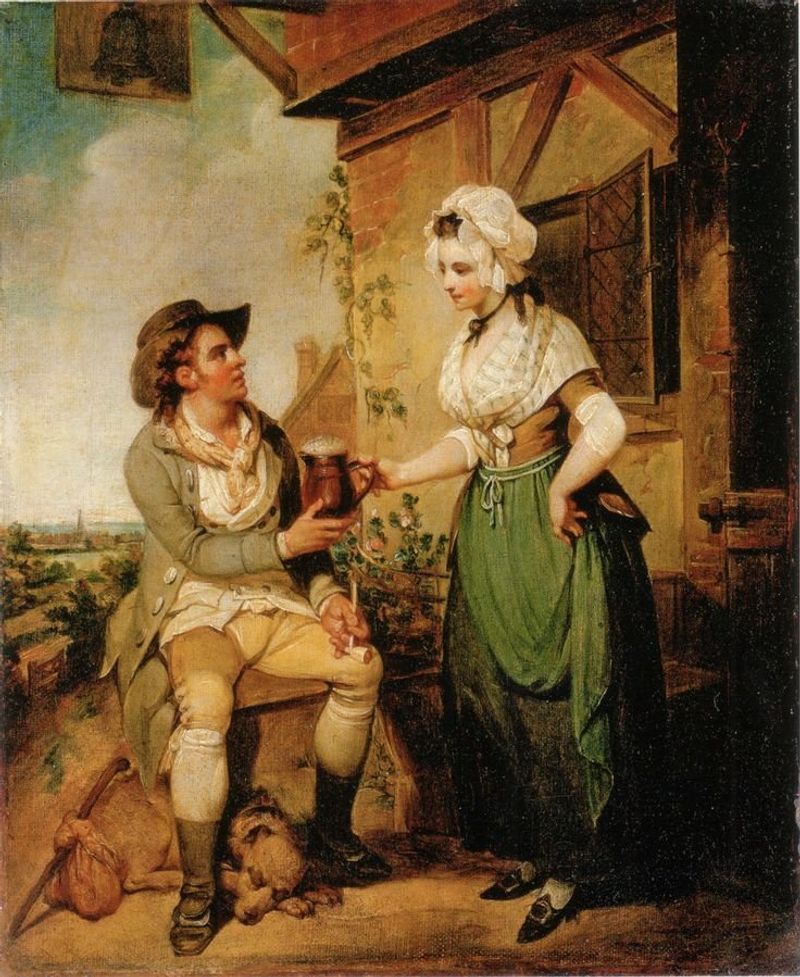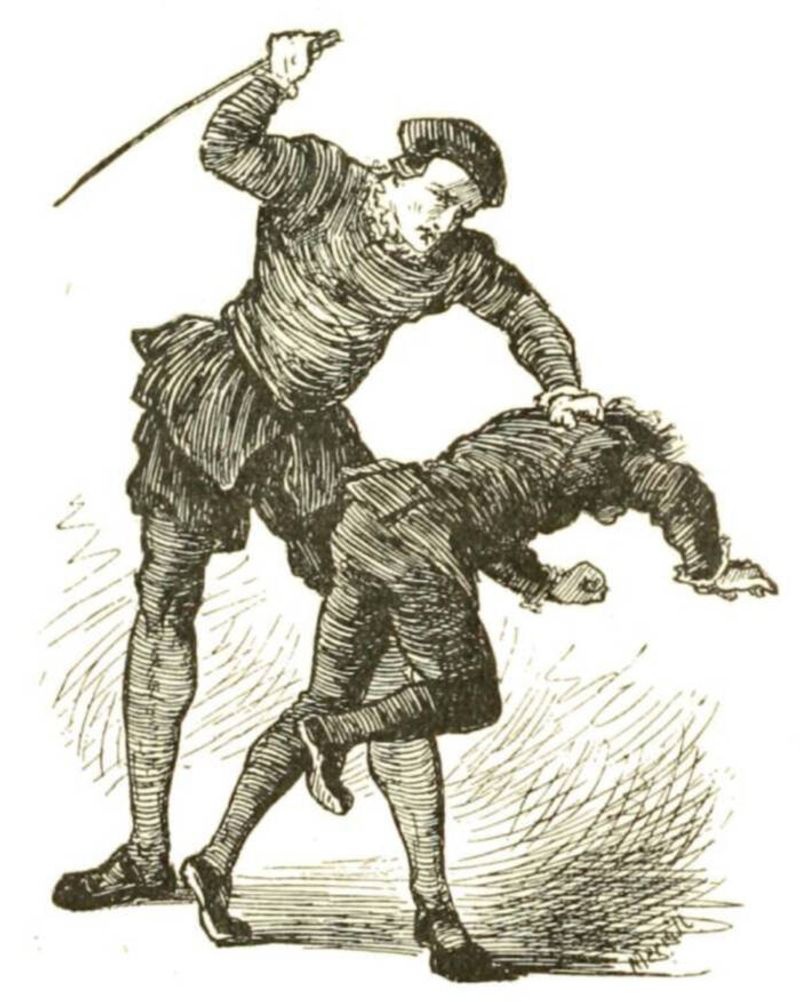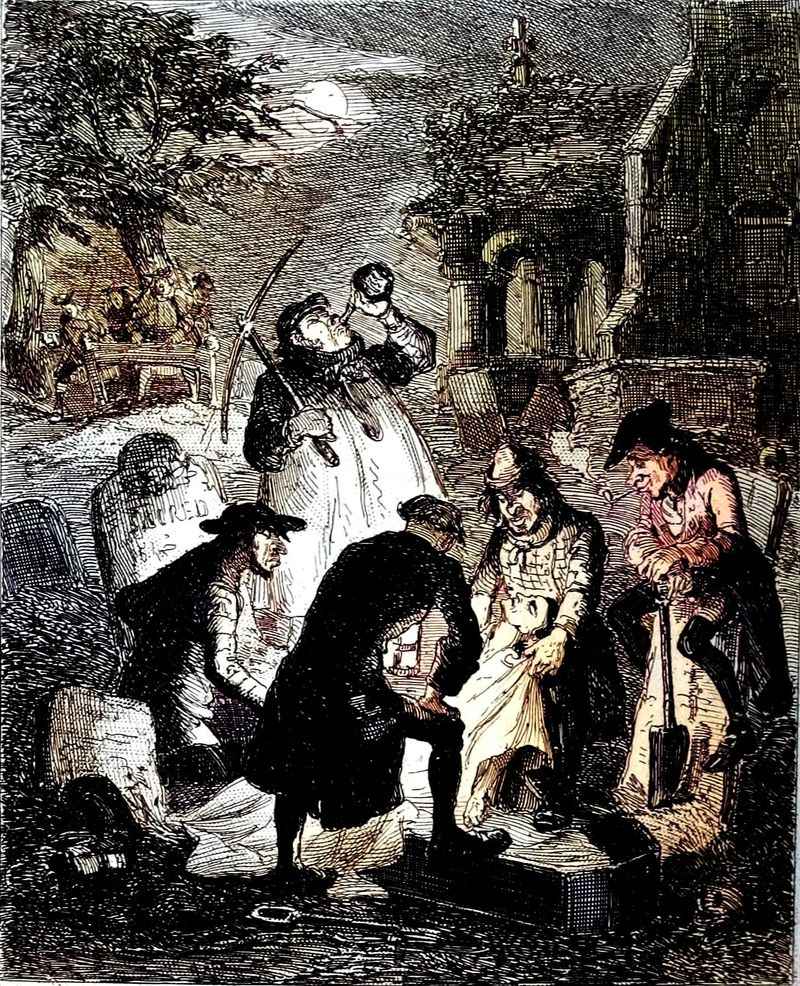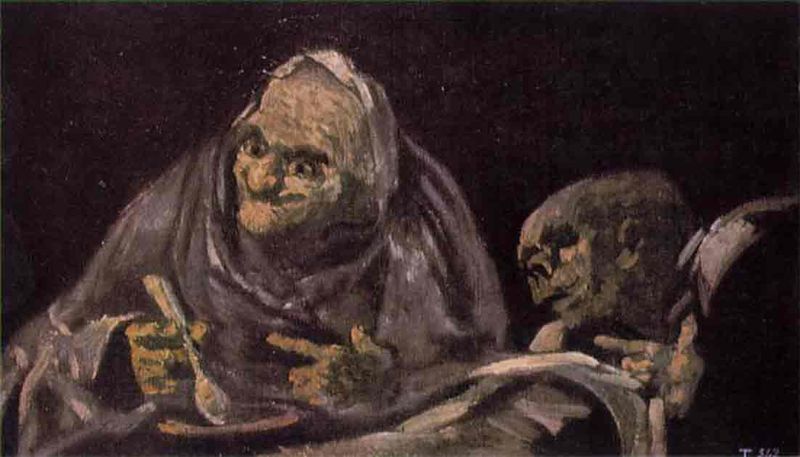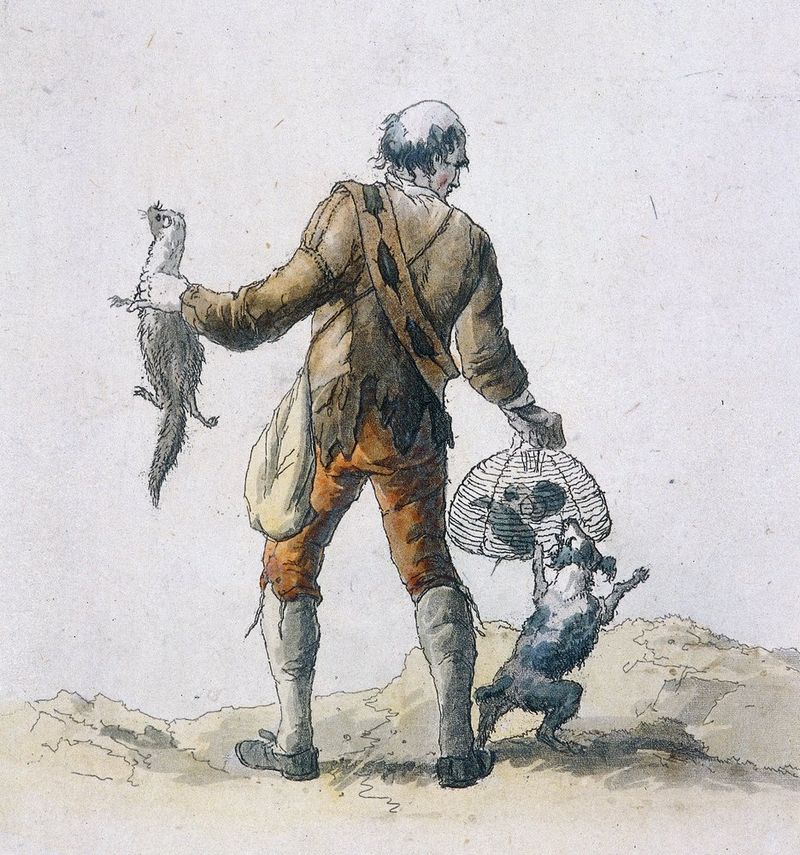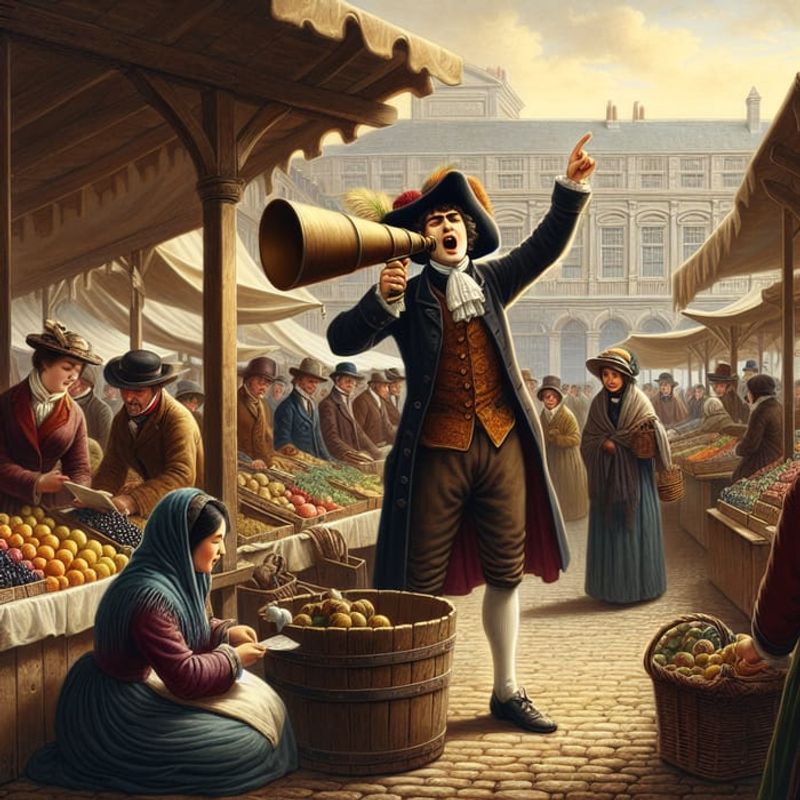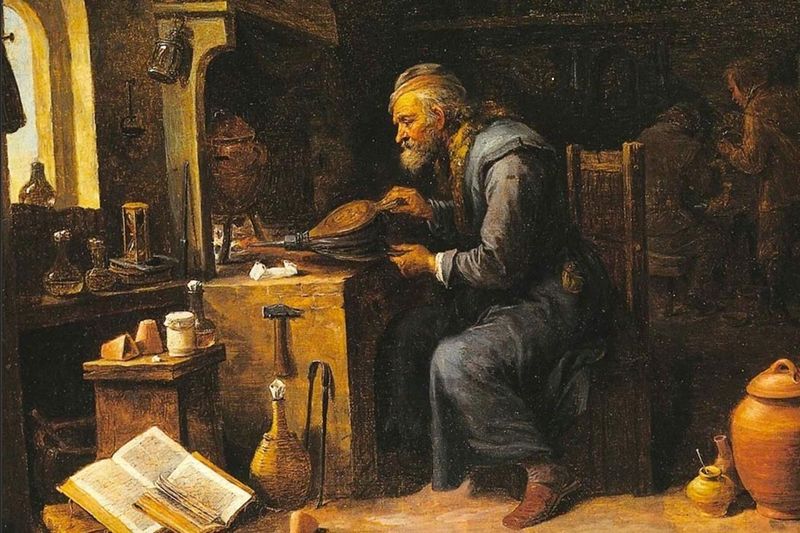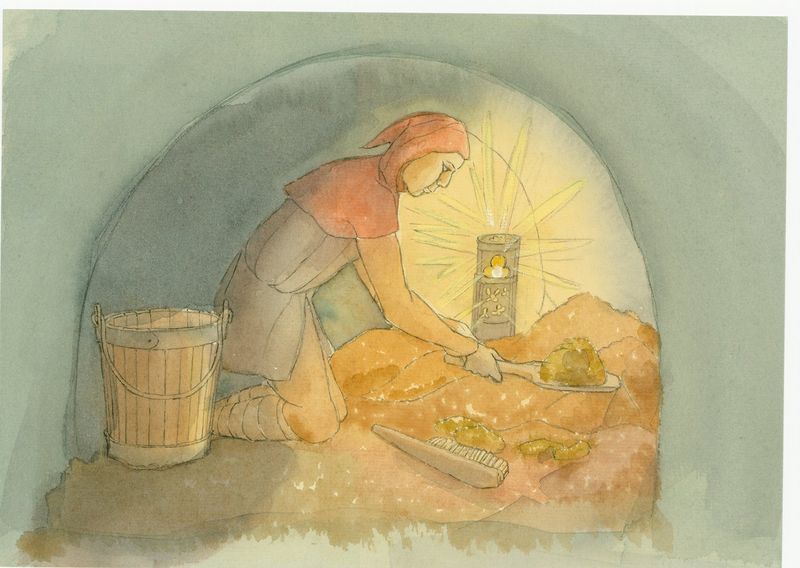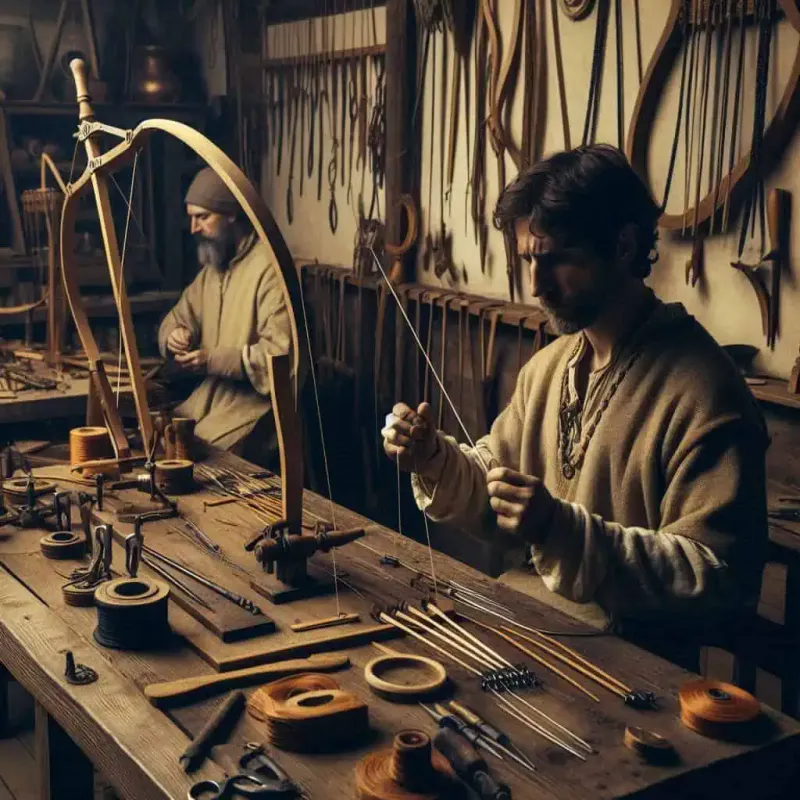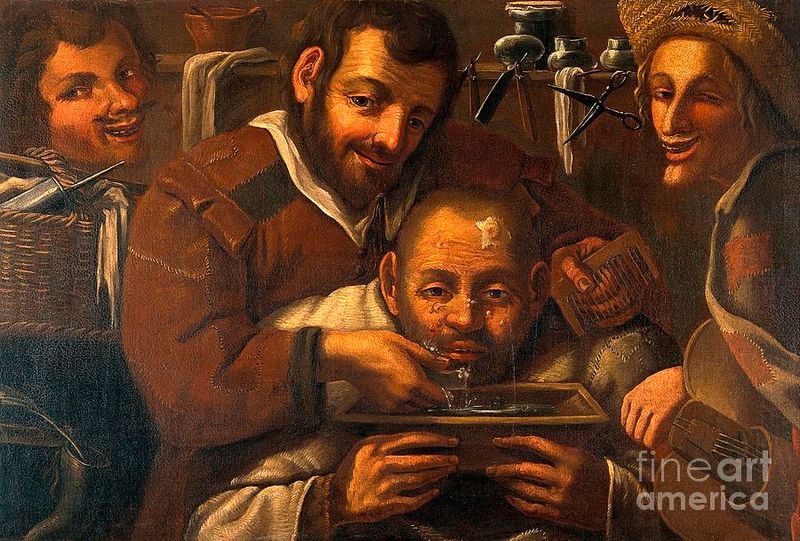Explore 13 unusual jobs from medieval times that played vital roles but have since vanished. These professions might seem bizarre today, but they were essential for various aspects of medieval life, from medicine to sanitation. Discover the intriguing world of leech collectors, groom of the stool, and other fascinating occupations that shaped history in unexpected ways.
1. Leech Collector
In the midst of a misty swamp, the leech collector plies their trade, gathering these small, slimy creatures. Leeches were indispensable to medieval medicine, believed to balance the body’s humors. The collector, often knee-deep in water, faced not only the challenge of capturing enough leeches but also the dangers of the swamp itself. The profession required a steady hand and a strong stomach, as these creatures were vital for doctors’ bloodletting procedures. Despite being a bizarre job, leech collecting was crucial in a world where medical knowledge was limited.
2. Groom of the Stool
Amid the opulence of the royal court, the groom of the stool served the king in the most intimate of ways. This position, though unglamorous, afforded the groom unparalleled access to the monarch, often leading to significant influence. Responsible for the king’s sanitary needs, the groom became a trusted confidant, privy to secrets and political maneuvers. The role demanded discretion and loyalty, as the groom was one of the few who could claim such proximity to royalty. This peculiar job was both humbling and empowering.
3. Fuller (or “Walker”)
In the bustling world of medieval textiles, the fuller played an unglamorous yet essential role. Stomping in vats filled with stale urine, this worker cleaned and thickened wool, ensuring the fabric was ready for use. The ammonia in urine acted as a natural detergent, a discovery that made fulling a crucial step in cloth production. Despite the unpleasantness of the task, fullers contributed significantly to the thriving textile industry. The job required stamina and resilience, often performed in workshops filled with the pungent scent of ammonia.
4. Ale Conner
In the lively atmosphere of a medieval tavern, the ale conner took on the unusual task of testing beer quality by sitting on it. If the leather breeches adhered to the barrel, it indicated a poorly brewed ale. This quirky method ensured that the daily drink of many, ale, was both safe and palatable. Ale conners, with their discerning taste and unique testing methods, played a critical role in maintaining brewing standards. Their work was vital for both public health and the tavern’s reputation, making them indispensable in the community.
5. Whipping Boy
In the grand halls of royal academies, the whipping boy stood beside princes, bearing punishment on their behalf. Since royalty couldn’t be disciplined, these noble children took their place, ensuring the young prince’s education continued smoothly. The inherent unfairness of the job sometimes fostered close bonds between the boys. Despite the physical pain, the whipping boy played a crucial role in instilling discipline in future monarchs, using guilt as a powerful motivator. This peculiar practice highlights the unique challenges of upbringing in royal circles.
6. Resurrectionist (Grave Robber)
Under the cover of darkness, resurrectionists unearthed fresh corpses from graves, supplying medical schools with specimens for anatomical study. This illegal yet vital activity advanced medical knowledge at a time when bodies for dissection were scarce. Despite the moral and legal risks, resurrectionists were crucial to the early study of human anatomy. Their clandestine work, often shrouded in secrecy and danger, contributed significantly to the foundation of modern medicine. The grim nature of the job did not overshadow its importance in scientific progress.
7. Sin-Eater
In the quiet of a mourning household, the sin-eater performed a solemn rite, consuming food placed on the deceased to absorb their sins. This practice offered comfort to the bereaved, ensuring the loved one’s soul could enter heaven unburdened. Sin-eaters, often social outcasts, carried the community’s spiritual burdens, acting as intermediaries between the living and the dead. Despite the eerie nature of the task, they provided an essential service, bridging the gap between earthly life and the afterlife, and offering solace to grieving families.
8. Rat Catcher
In the narrow alleys of medieval cities, rat catchers waged a relentless battle against vermin. Armed with dogs and ferrets, they hunted rats to prevent the spread of disease, such as the devastating Black Death. These hunters, though often overlooked, played a crucial role in public health. Their work helped curb pest populations, reducing the spread of illness in crowded urban centers. The profession demanded agility and courage, as rat catchers navigated dirty and dangerous environments daily, contributing to the community’s well-being.
9. Crier (Town Bellman)
Standing at the center of the medieval marketplace, the crier’s voice rang out above the bustling crowd. As the town’s news anchor, he delivered proclamations, laws, and news, keeping the public informed in an era before newspapers. The crier’s job was vital for communication, ensuring that everyone, literate or not, received important information. With their clear voice and commanding presence, criers were a familiar and trusted source of news. Their announcements shaped public opinion and kept communities connected and informed.
10. Alchemist
In the dimly lit chamber of an alchemist’s lab, the pursuit of turning lead into gold inspired countless experiments. While the goal eluded them, alchemists accidentally laid the groundwork for modern chemistry. Their tireless curiosity and experimentation led to discoveries in metallurgy, medicine, and more. Alchemists were pioneers, driven by the promise of riches and the mysteries of nature. Despite their failures, their contributions to science were significant, bridging the gap between mystical beliefs and empirical research in the medieval world.
11. Gong Farmer
In the shadowed corners of medieval cities, the gong farmer toiled in one of the least enviable professions. Tasked with removing human waste from cesspits, they played a crucial role in city sanitation. Despite the foul stench and unsanitary conditions, their work prevented the spread of disease and maintained public health. Gong farmers were often marginalized, yet their contributions were vital to urban living. The job demanded strength and resilience, and although it was met with disdain, it served an essential function in maintaining city hygiene.
12. Arrow Smith
Amidst the clamor of a forge, the arrow smith honed his craft, producing essential ammunition for medieval warfare. Each arrow was meticulously crafted, balancing precision with speed. In times of war, the demand for arrows surged, making this profession crucial for military success. The arrow smith’s skill contributed significantly to the potency of armies, supplying the means for defense and conquest. Their craftsmanship, though often overlooked, played a pivotal role in shaping the outcomes of battles, ensuring armies remained armed and ready.
13. Barber-Surgeon
In the heart of a bustling town, the barber-surgeon offered services ranging from haircuts to surgeries. With a steady hand and sharp tools, they performed everything from tooth extractions to amputations. The barber-surgeon was a jack-of-all-trades, providing essential medical care in a time when physicians were scarce. Their shops, known for the iconic barber pole, were the go-to place for health and grooming needs. Despite the risks, their work was indispensable, bridging the gap between barbering and medicine in medieval society.
